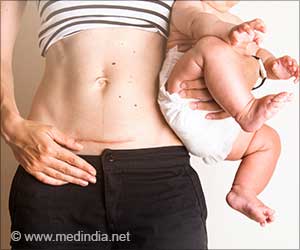C-section delivery can put your child at risk for colorectal cancer.
- Females born via cesarean birth may have a higher risk of developing early-onset colorectal cancer (CRC)
- The use of cesarean sections has increased, and many countries with rising rates of early-onset CRC have also seen an increase in cesarean birth rates
- The link between cesarean delivery and early-onset CRC was discovered in female patients but not in male patients and was not mediated by birth features
Evaluation of Birth by Cesarean Delivery and Development of Early-Onset Colorectal Cancer
Go to source).
Colorectal cancer: Sudden Increase Around the Globe
Many regions around the world have seen an increase in the incidence of CRC in people under the age of 50 years old. Obesity, diabetes, extended sitting, and metabolic syndrome are all risk factors for early-onset CRC. These findings point to a role for the gut microbiome in early-onset CRC. In the United States, the prevalence of early-onset CRC has increased with each succeeding birth cohort, lending credence to the theory that early life exposures influence CRC risk. Many countries with rising rates of early-onset CRC have also seen an increase in cesarean birth rates, with the US cesarean delivery rate rising from 5% in the 1970s to around 30% after 2009.Is C-Section Impacting the Incidences of Colorectal Cancer?
As the use of cesarean sections increases, there is a greater need to study the long-term health consequences. A countrywide, population-based case-control study was done to better understand the link between cesarean delivery and the risk of early-onset CRC.TOP INSIGHT
Female patients born via cesarean section were more likely to develop colon cancer at a younger age.
The ESPRESSO data was linked to the Swedish Medical Birth Register (MBR), which has information on 98% of Swedish births. This data set has been cross-checked with the Total Population Register and covers information from the first antenatal appointment through delivery and hospital discharge.
Individuals with GI tract histopathologic abnormalities in the ESPRESSO cohort who matched a CRC incidence diagnosis aged 18 to 49 years from 1991 to 2017 were evaluated. To achieve suitable histopathologic findings and registry-level case confirmation, potential cases were matched with their hospital and outpatient records.
Individuals with CRC incidence were matched with controls based on gender, calendar year, country of residence, and age at the time of the index. Prior inflammatory bowel disease (IBD) and hereditary malignancies were ruled out of the study.
Maternal characteristics such as cesarean delivery history, country of birth, age at delivery, living with a partner, education level, comorbidities, and parity were included as covariates. The MBR also captured birth characteristics such as birth weight, gestational age, and birth length.
In patients with early-onset CRC, 9.8% were delivered via cesarean section, compared to 8% in controls. A link between cesarean delivery and early-onset CRC was discovered in female patients but not in male patients. After multivariable adjustment, this link remained non-significant.
The link between cesarean delivery and early-onset CRC was not mediated by birth features, indicating an elevated risk of CRC in cesarean-born women.
Reference:
- Evaluation of Birth by Cesarean Delivery and Development of Early-Onset Colorectal Cancer - (https://jamanetwork.com/journals/jamanetworkopen/fullarticle/2804228)
Source-Medindia
 MEDINDIA
MEDINDIA





 Email
Email










